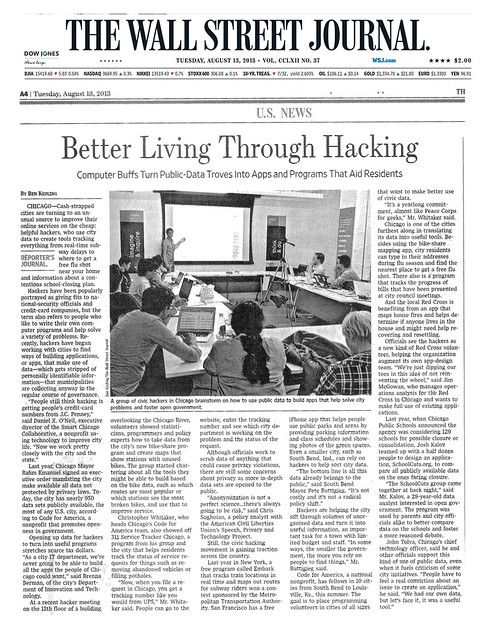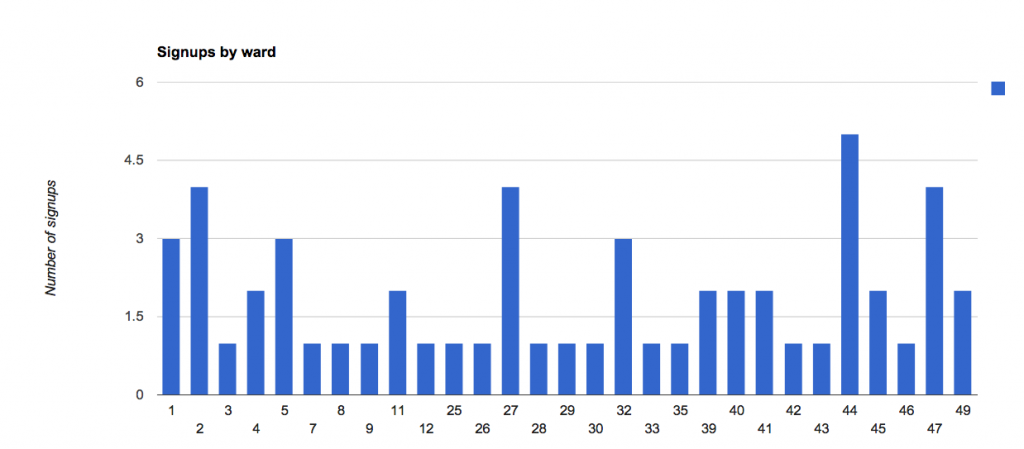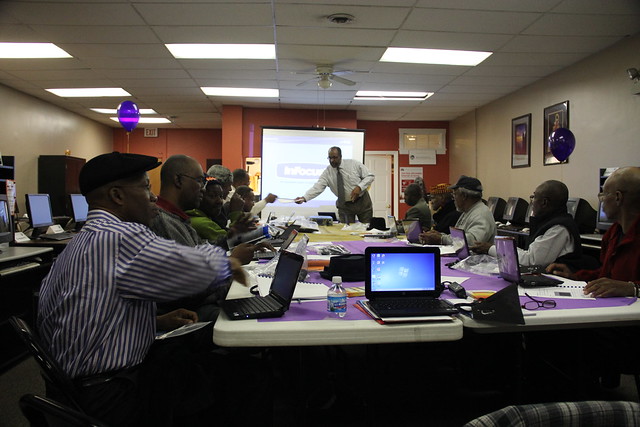 Susan Crawford has an important piece in today’s New York Times: The New Digital Divide. Here’s a snip:
Susan Crawford has an important piece in today’s New York Times: The New Digital Divide. Here’s a snip:
Over the last decade, cheap Web access over phone lines brought millions to the Internet. But in recent years the emergence of services like video-on-demand, online medicine and Internet classrooms have redefined the state of the art: they require reliable, truly high-speed connections, the kind available almost exclusively from the nation’s small number of very powerful cable companies. Such access means expensive contracts, which many Americans simply cannot afford.
While we still talk about “the” Internet, we increasingly have two separate access marketplaces: high-speed wired and second-class wireless. High-speed access is a superhighway for those who can afford it, while racial minorities and poorer and rural Americans must make do with a bike path.
Hundreds of people here in Chicago have worked in a sustained way on matters of the Digital Divide here in our city. Much progress has been made, including expanded programs at libraries and increased capacity at other public computer centers. Lots of applications are being built for both high-speed and lower-speed Internet connections.
She outlines good news on the connectivity front:
True, Americans of all stripes are adopting smartphones at breakneck speeds…
These numbers are likely to grow even starker as the 30 percent of Americans without any kind of Internet access come online. When they do, particularly if the next several years deliver subpar growth in personal income, they will probably go for the only option that is at all within their reach: wireless smartphones. A wired high-speed Internet plan might cost $100 a month; a smartphone plan might cost half that, often with a free or heavily discounted phone thrown in.
But highlights an underlying problem:
The problem is that smartphone access is not a substitute for wired. The vast majority of jobs require online applications, but it is hard to type up a résumé on a hand-held device; it is hard to get a college degree from a remote location using wireless. Few people would start a business using only a wireless connection.
As the market progresses, and technology advances, the original way we conceived of the “divide” morphs into something more sophisticated. Smart Chicago is working toward a day when reliable, high-speed access— and the transformative power of the applications that run on those networks— is everywhere.





